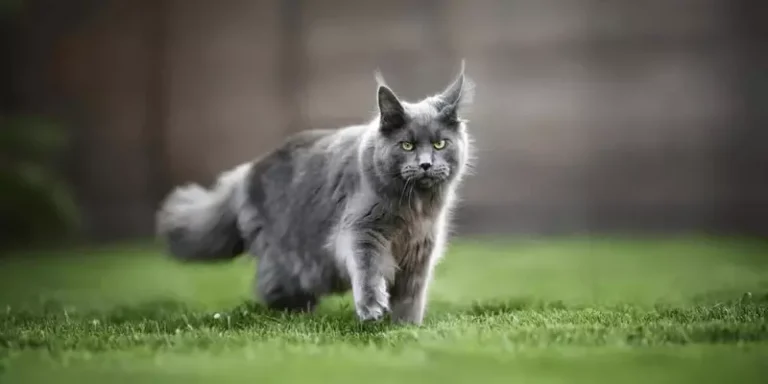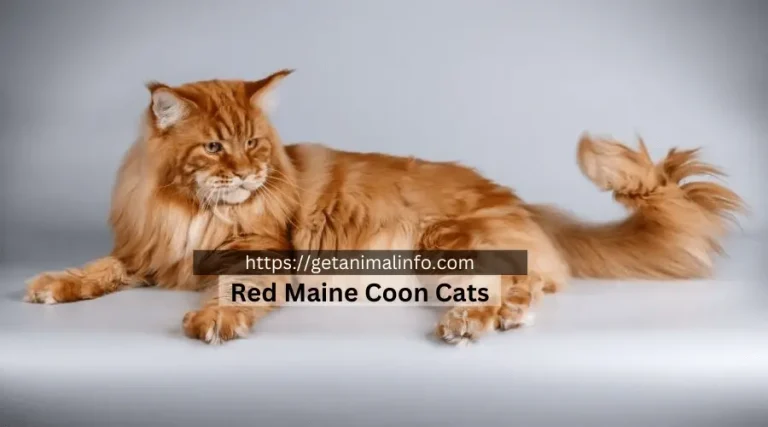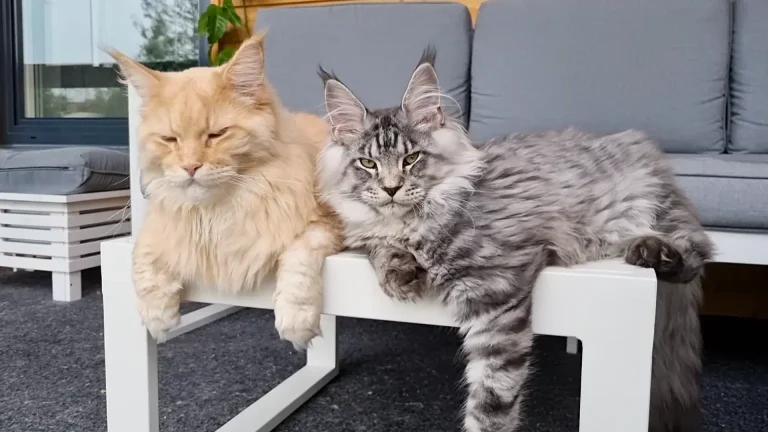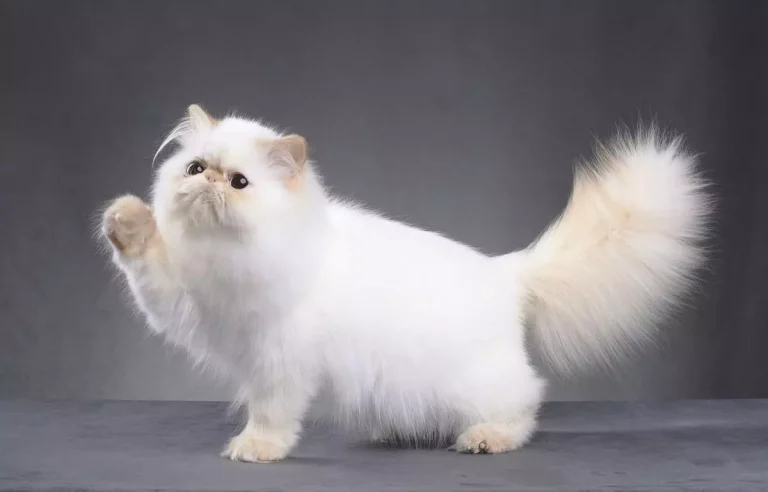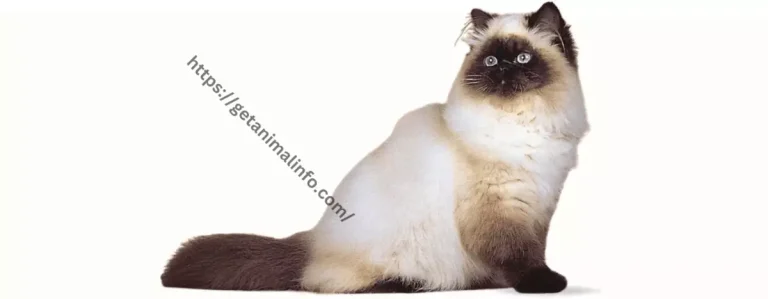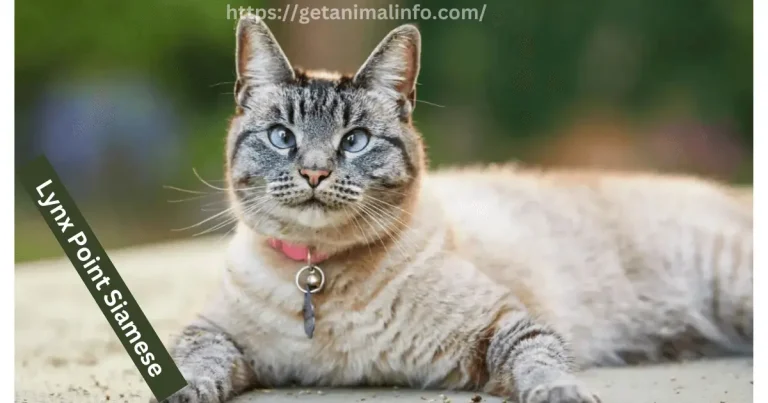Complete Guide to Brown Maine Coon Cats: Care, Personality, and Health Tips
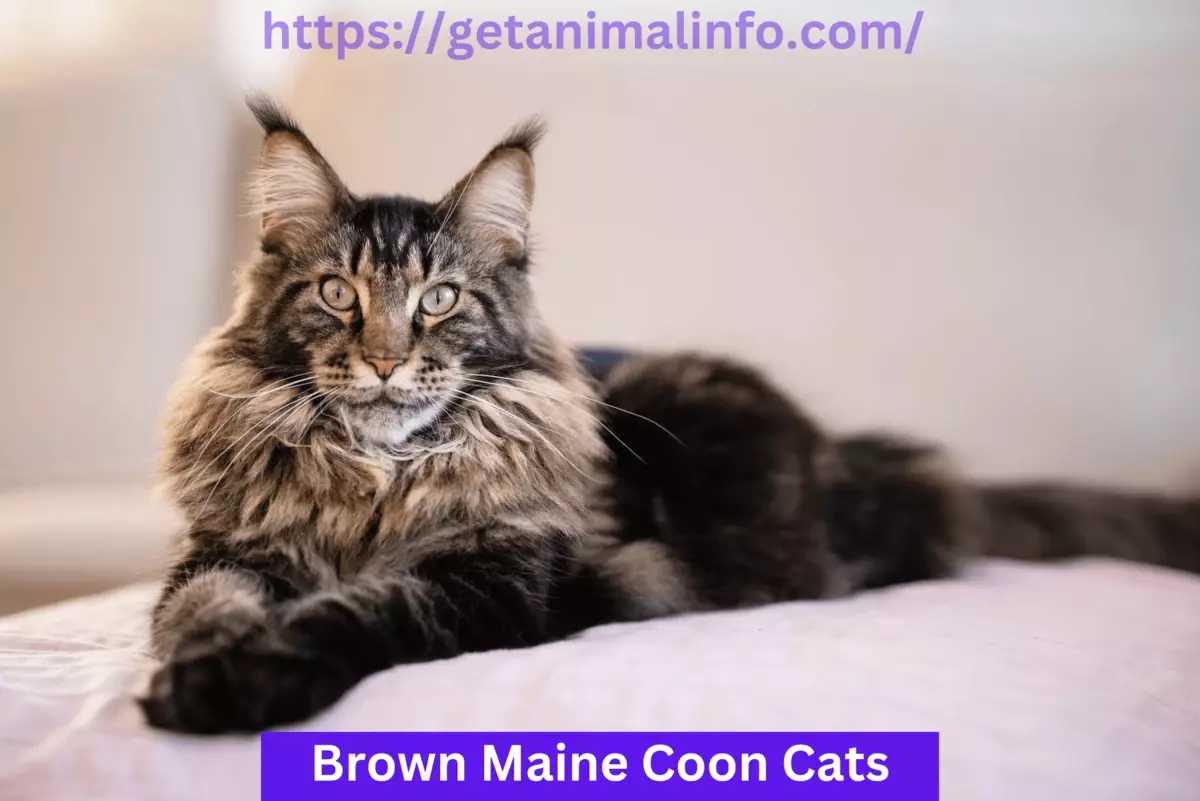
Brown Maine Coon cats are very interesting and cute. They are mostly brown, a common color for this type of cat, and it’s easy to find them. These cats are relaxed and gentle, making them great pets for families. People often call them Brown Coonies, or just ‘Coonie’ for short.
Some people might think these big brown cats are a mix of raccoons and cats because of how they look. But this is not true and scientifically impossible. European settlers brought these cats to New England, where they bred naturally with local cats.
The brown color of Maine Coons comes from a pigment called eumelanin, made by a gene for browning. There are two types of this gene: one is ‘recessive’ and the other is ‘dominant.’ The recessive gene creates cinnamon and chocolate colors in Maine Coons, while the dominant gene leads to a black color.
You can also read:
Information Table
| Aspect | Information About Brown Maine Coon Cats |
|---|---|
| Lifespan | Typically 12-14 years, can vary based on health, diet, and care. |
| Personality | Friendly, sociable, intelligent, playful, affectionate. Good with children and other pets. |
| Grooming Needs | Regular brushing due to long fur, occasional baths, routine ear, eye, and dental care. |
| Size | One of the largest domestic cat breeds; males are generally larger than females. |
| Health Concerns | Prone to hip dysplasia, spinal muscular atrophy, stomatitis, polycystic kidney disease. Regular vet check-ups are important. |
| Living Environment | Adaptable to various environments, including apartments, as long as they have enough space and stimulation. |
| Diet | Requires a balanced diet with a focus on protein. Risk of obesity if not managed properly. |
| Training | Intelligent and trainable using positive reinforcement methods. |
| Cost | Higher initial cost and upkeep. Includes purchasing price, food, grooming supplies, and vet visits. |
| Activity Level | Active and playful; needs mental and physical stimulation. |
| Compatibility | Excellent for families, singles, and seniors. Adaptable to living with other pets. |
Recognizing a Brown Maine Coon:
It’s important to know how to identify a genuine Brown Maine Coon to ensure you’re not mistakenly given a different brown cat or another breed at the price of a Brown Maine Coon. These majestic cats have distinct features that set them apart.
One of the first things to notice is their color patterns. Brown Maine Coons can vary in shades, and some may have a unique black-brown pattern, where the base coat is brown with black banding. This can be confusing, as it differs from the solid brown color people often expect.
In terms of physique, these cats are muscular and have a robust build. They typically weigh between 12 to 18 pounds. Despite their size, they are not overweight, but rather solid and sturdy. Understanding these physical characteristics is key in recognizing a true Brown Maine Coon.
When considering purchasing one, it’s crucial to be familiar with these aspects to ensure you get an authentic Brown Maine Coon cat.
Appearance:
These brown Maine Coon cats are known for their large size and muscular, rectangular-shaped bodies. They have medium-width heads and prominent high cheekbones, adding to their striking appearance. Their coats are notably shaggy and thick, which enhances their stunning look.
Body Size Differences Between Male and Female:
The male Brown Maine Coon cats are generally larger, more muscular, heavier, and longer than their female counterparts. As adult cats, males can reach a remarkable length of up to 40 inches from head to tail.
Here’s a comparison of the typical physical measurements for male and female Brown Maine Coon cats:
Height
Length:
Weight
These measurements give a clear understanding of the size differences between the sexes in this breed, with males being noticeably larger in all aspects.
Brown Maine Coon Eyes:
Why Their Eyes are Special:
The eyes of Brown Maine Coon cats are very beautiful and different from other cats. Their eyes are oval-shaped, and the pupils are vertical slits. These cats even won an award for their lovely eyes!
Eye Colors:
When these cats are kittens, they all have blue eyes, just like other Maine Coons (like the blue or white ones). But as they grow up, their eye colors can change to copper, golden, or green.
Common Eye Problems:
Like all cats, they can have eye issues. Sometimes, they get eye infections or have discharge (goo or liquid) from their eyes. This can happen from dust, especially when they go outside for a walk. To help prevent this, you can use special cat eye goggles to protect their eyes.
Serious Eye Problems:
Unfortunately, Brown Maine Coons can also have more serious eye problems, such as:
Lifespan of Brown Maine Coon Cats:
Brown Maine Coon cats typically live for about 12 to 14 years. However, how long they actually live can depend on several factors:
Brown Maine Coon Price:
The price of Brown Maine Coon cats varies depending on several factors:
Here’s a general price breakdown:
Budget Considerations: For those who have a limited budget but wish to own a Brown Maine Coon, adopting from rescue centers or local shelters can be a more affordable option than buying from breeders. Cats from shelters may cost less, and this also provides a home for cats in need.
Different Patterns in Brown Maine Coon Cats:
Brown Maine Coon cats come in various beautiful patterns, each with its unique characteristics. Here are some of the patterns you might find in these majestic cats:
Brown Spotted Maine Coon:
Brown Patched Maine Coon:
Brown Mackerel Maine Coon:
Brown Ticked Maine Coon:
Brown Classic Maine Coon:
Explaining Brown Maine Coon Kittens:
Choosing a Brown Maine Coon kitten can be a delightful experience, especially if you prefer a more energetic and interactive pet experience compared to owning a mature cat. Kittens are playful and provide a unique opportunity to bond as you train and raise them from a young age.
Choosing Between Male and Female Kittens:
When you decide to get a Brown Maine Coon kitten, you can choose between a male or a female. Both genders make wonderful pets and are known for being gentle and easygoing. However, there are some differences in their personalities:
Male Brown Maine Coon Kittens:
Female Brown Maine Coon Kittens:
The Personality of Brown Maine Coon Cats:
When choosing a pet, many people pay close attention to personality traits, and this is especially true for Brown Maine Coon cats. Their personality is a key reason for their popularity, and they typically exhibit traits like being laid-back, friendly, and sociable.
Laid-back
Friendly
Sociable
Grooming a Brown Maine Coon Cat in Detail:
Grooming Brown Maine Coon cats is more involved than short-haired cats due to their long fur. Here’s a detailed guide:
1.Teeth Brushing
2.Bathing
3.Fur Brushing
4.Nail Trimming
5.Ear and Eye Cleaning
6.Grooming Schedule
Training:
Training is important for your cat’s mental and physical well-being, and it also helps strengthen your bond with them. Fortunately, Brown Maine Coons are intelligent and often find learning easier than some other breeds.
Positive Reinforcement:
This is the best way to train your cat.
Avoiding Negative Reinforcement:
Protein-Rich Foods
Fruits and Vegetables
Wet or Canned Food
Balanced Diet:
A healthy diet is crucial for your cat’s health and well-being.
Cost Considerations:
Health Problems in Brown Maine Coon Cats:
Even though Brown Maine Coon cats are generally healthy, they can still be prone to certain health issues, often due to genetic factors. Responsible breeders typically conduct DNA tests to reduce the risk of these problems. Here are some of the common health issues that can affect Brown Maine Coons:
Hip Dysplasia
Stomatitis
Stomatitis
Polycystic Kidney Disease
Pros
Cons
FAQ
Conclusion
Brown Maine Coon cats are a unique and enchanting breed known for their friendly and sociable nature, intelligence, and stunning appearance. While they make excellent companions, especially for families, prospective owners should be aware of their specific needs. This includes regular grooming due to their long fur, understanding their potential health issues, and ensuring they have enough space and stimulation, even in an apartment setting. Their lifespan, generally between 12 to 14 years, can be maximized with proper care and regular veterinary check-ups.

